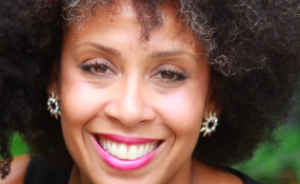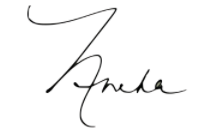- Home
- About Us
- The Team / Contact Us
- Books and Resources
- Privacy Policy
- Nonprofit Employer of Choice Award


- https://nalibali.org/news-blog/literacy-issues/story-meaning-making
For the majority of my 20-year career, I have been the only Black woman in the room. I continue to cope and manage that reality, but to be clear, it is work. The impact of this isolation is cumulative and there is much to be said about being “the only or the first.”
Most of the issues facing Black people in our institutions, and communities are systemic and deeply engrained, which is precisely why we are successfully kept from truly belonging.
But the Work of Undoing is about finding people who can identify with your experiences and frustrations, getting together because of this commonality, and unpacking and challenging it together. The Work of Undoing requires that when you get together you name and confront those things using whatever means available to you.
The stories we share unveil our individual experiences; the details of the injustice and inequity we face daily; they also reveal the depth of our individual and collective courage. These stories were written a year ago during times of certainty. And in this time of global crisis due to COVID-19, we believe exposure and understanding of our realities is even more critical.
These are revolutionary times and we know first-hand how Black women are uniquely situated within overlapping systems of oppression to sustain disproportionate losses of both life and livelihood during this pandemic.
“Black women are concentrated in frontline health care work. The agricultural industry employs large numbers of Black migrant workers who are affected by border closures. New State of Emergency declarations raise concerns about the intensification of racial profiling directed at Black communities. Black people make up a disproportionate amount of precarious workers, people in the gig economy, and home businesses such as hairdressing. Prisons, known as an epicenter of infections, disproportionately incarcerate Black people. The socio-economic impact of health means that COVID-19 will have a serious impact on Black communities and seniors.”
- Halifax Examiner, “Black People Already Struggle to Breathe in Canada, Ignoring us During this COVID-19 Crisis Will Only make it Worse.”
During this time of chaos the conditions in which Black people live are amplified. The thought leadership and resilience that the Black community possesses is a commodity currently being squandered. Now is the perfect time to begin listening to and trusting the voices of Black people.
Our diverse Black Canadian stories are rarely told and it is even more rare that we have the opportunity to tell them ourselves, uncensored, in their painful authenticity. Maya Angelou said, “There is no greater agony than bearing an untold story inside you.” And we have many untold stories to share. This is an exercise of self-care. Speaking our truth, sharing our lives and revealing our intelligence.
“The past is gone. But we still live in its wake.” ~ Unknown
And so we begin by examining “Our Right to Heal.” Our stories are shared both for the reader to learn and empathize, but this is also medicine for the women who write. The agony of being made invisible, the assumption that our lived experiences and stories are not worth telling and the ultimate exclusion of our contributions must be acknowledged. These Bright Papers serve as an illumination and a therapy.
"Stories summon us to wisdom, strength and delight, and make the richness of imagination available to all of us. We engage in story to understand ourselves and our world as well as to envision a better world and to take action that makes a difference. They have the power to direct and change our lives and world – if we provide the time and space necessary for their role in meaning-making. Story is at the heart of who we each are as human beings. They are our memory and identity for in the stories could be found wisdom and in wisdom, strength.”
- https://nalibali.org/news-blog/literacy-issues/story-meaning-making
I couldn’t imagine a better investment of my time. It has been my true pleasure to immerse myself in the work of undoing while amplifying the voices of my sister-friends. We share our stories because we love ourselves, our communities and the education of our allies.
“Caring for myself is not self-indulgence, it is self-preservation, and that is an act of political warfare.” ~ Audre Lorde

Nneka Allen, CFRE
In 2019, a group of Black Canadian women fundraisers approached AFP about telling their stories, both professional and personal. The project contains a series of what AFP is calling Bright Papers, each written by a member of the group, as well as videos and interviews. To reach this collection, click here.